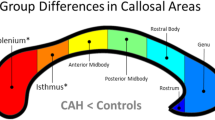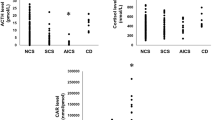Abstract
IN experiments where we sought a suitable adsorbent for the separation of corticoids by partition chromatography, we found that in calcium sulphate columns a good separation is obtained of less-polar corticoids when chloroform is used for elution. Based on this fact, a detailed analytical procedure was worked out for the fractionation of some corticoids in urinary extracts. The desirable properties of calcium sulphate were applied successfully in a method using thin layers, which substantially speeded up and simplified chromatographic analysis of steroid mixtures and separated the polar 17-OH-corticoids.
This is a preview of subscription content, access via your institution
Access options
Subscribe to this journal
Receive 51 print issues and online access
$199.00 per year
only $3.90 per issue
Buy this article
- Purchase on SpringerLink
- Instant access to the full article PDF.
USD 39.95
Prices may be subject to local taxes which are calculated during checkout
Similar content being viewed by others
References
Bush, I. E., and Willoughby, M., Biochem. J., 67, 689 (1957).
Silber, R. H., and Porter, C. C., J. Biol. Chem., 210, 923 (1954).
Author information
Authors and Affiliations
Rights and permissions
About this article
Cite this article
MATIS, J., ADAMEC, O. & GALVÁNEK, M. Use of a Thin Layer of Calcium Sulphate for the Chromatographic Separation of Corticoids. Nature 194, 477–478 (1962). https://doi.org/10.1038/194477b0
Issue date:
DOI: https://doi.org/10.1038/194477b0
This article is cited by
-
D�nnschichtchromatographische Isolierung von Aldosteron aus Harn
Klinische Wochenschrift (1962)



